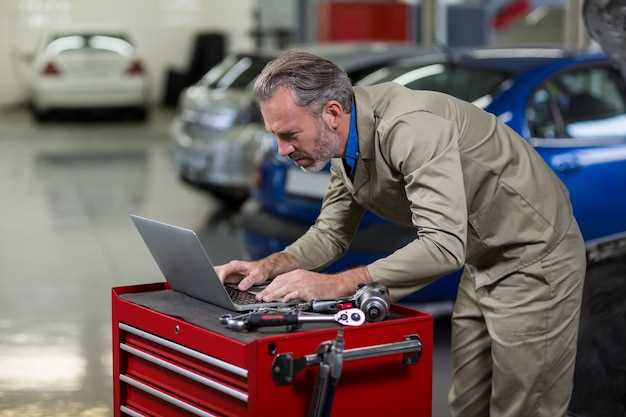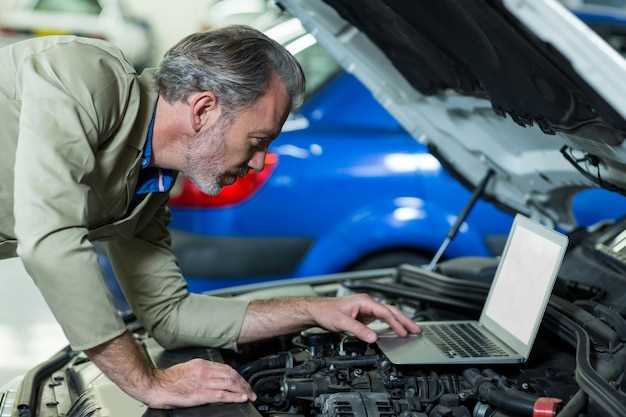
When it comes to owning modified cars, proper maintenance is crucial to ensuring performance and longevity. These vehicles often undergo significant changes in their engineering and design, which can lead to unique challenges when it comes to upkeep. Therefore, understanding how to care for your modified vehicle can make a substantial difference in its reliability and your driving experience.
Maintaining modified cars requires a tailored approach. The enhancements made to these vehicles can alter their mechanical and electronic systems, necessitating regular checks and specialized maintenance routines. From upgraded suspension systems to custom exhausts, each modification comes with its own set of requirements to keep the vehicle running smoothly.
In this article, we will explore essential maintenance tips specifically designed for modified vehicles. By following these guidelines, you can ensure that your car remains not only a reflection of your personal style but also a dependable performer on the road.
Regular Inspection of Modifications and Upgrades
For owners of modified cars, regular inspection of modifications and upgrades is crucial to ensure both safety and performance. Over time, enhancements such as new suspensions, exhaust systems, or engine modifications can experience wear and tear. Regular checks help to identify any potential issues early, preventing costly repairs down the line.
Start by evaluating the integrity of all installed parts. Look for any signs of damage, such as cracks, rust, or loose fittings. Components like suspension systems can shift over time, affecting handling and ride quality. Pay attention to the alignment and condition of several critical areas, including tires, brakes, and steering components.
In addition to physical inspections, maintaining an accurate log of all modifications is advisable. This log should include details about the parts used, installation dates, and any services performed. Such records will be invaluable during inspections and can aid in tracking the performance of various upgrades.
Moreover, consider the compatibility of modifications with the original car systems. Aftermarket components can sometimes lead to conflicts, causing unexpected issues. Regularly check that upgrades remain compatible and function as intended, especially after major repairs or services.
Finally, always consult with professional mechanics or specialists familiar with modified vehicles. Their expertise can provide insights into potential problems, recommend routine checks, and offer guidance on maintaining high performance for long-term reliability. By prioritizing regular inspections, owners can enjoy the benefits of their modified cars while ensuring safety and performance remain at optimal levels.
Choosing the Right Fluids for Performance Parts

When maintaining modified cars, selecting the proper fluids is critical for optimal performance and longevity of engine and other performance components. Ordinary fluids may not provide the necessary protection, lubrication, or cooling required by high-performance parts.
For engine oil, it’s essential to choose a high-viscosity synthetic oil. This type of oil withstands high temperatures and reduces friction, ensuring smooth operation of the engine under stress. Look for oils specifically designed for high-performance applications, which often include special additives that enhance engine protection during extreme conditions.
Transmission fluid is another crucial component. Sports cars or modified vehicles often require fluids formulated for high-performance transmissions. These fluids have properties that maintain viscosity under different temperatures and reduce wear on gears, which is vital for vehicles subjected to aggressive driving styles.
Additionally, coolant plays a significant role in maintaining engine temperature, especially in modified cars with increased horsepower. Select a coolant with a proper mix of antifreeze and water, utilizing one suited for performance applications. This type of coolant often includes corrosion inhibitors and can handle higher temperatures without boiling.
Brake fluid should not be overlooked either. Performance vehicles can generate significant heat, leading to brake fade. Use a high boiling point brake fluid that meets or exceeds DOT standards. This ensures reliable braking performance and prevents vapor lock under heavy usage.
Finally, always adhere to manufacturer recommendations for fluid types and intervals. Regularly checking and replacing fluids as part of your maintenance routine is essential for the upkeep of modified vehicles. By choosing the right fluids, enthusiasts can ensure their cars perform at their best and remain reliable on the road or track.
Maintaining Tire Health for Enhanced Handling

For modified cars, proper tire maintenance is essential to ensure enhanced handling and overall performance. Tires on these vehicles are often subject to increased stress due to upgrades like suspension modifications and power enhancements. Here are some key tips to maintain tire health effectively.
Firstly, regular pressure checks are vital. Under-inflated tires can lead to poor handling and increased wear, while over-inflated tires compromise grip and comfort. Use a reliable tire pressure gauge to maintain the manufacturer’s recommended pressure, adjusting as necessary based on driving conditions.
Secondly, inspect the tread depth periodically. Tread wear indicators help assess whether tires remain safe for use. A tire with insufficient tread depth can significantly decrease traction, especially in wet or slippery conditions. If tread wear is uneven, it may indicate alignment issues that need to be addressed promptly.
Additionally, consider rotating your tires every 5,000 to 7,500 miles or according to the vehicle manufacturer’s recommendations. This practice helps to ensure even wear across all tires, extending their lifespan and maintaining optimal handling characteristics.
Furthermore, alignment and suspension checks should be routine, especially for modified vehicles. Upgraded components can affect how wheels align and interact with the road. Misalignment can lead to accelerated tire wear and influence how your modified car handles during turns or at high speeds.
Lastly, keep your tires clean and free of debris. Regularly removing dirt and stones prevents damage and maintains tire performance. Applying a protective tire dressing can also help safeguard against UV damage and weathering, prolonging tire life.
By following these maintenance tips, you can maximize tire health, ensuring your modified car handles better and provides a safer driving experience.






